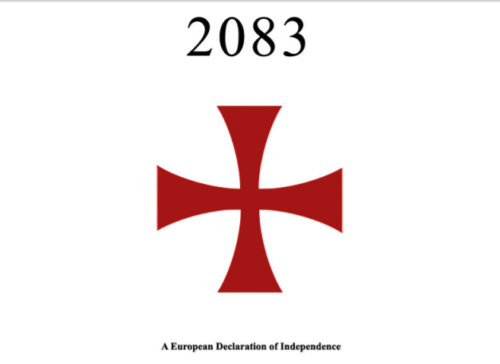
This reading carries on from here.
In this section (c. pages 659-775), Breivik talks about strategies for strengthening the European right in the face of what he sees as the Islamo-Marxist enemy. Here the emphasis is on the cultural and propaganda wars.
Perhaps the biggest irony of this entire document, considering what happened afterwards and considering the public’s perception of Breivik, is when he correctly points out that if modern, mainstream conservatives are too cowardly to discuss the important issues “then extreme conservatives will, and we eventually risk ending up with another nasty/racist form of fascism”.
Again in this section, Breivik demolishes the hypothesis that he is a neo-Nazi with his repeated support for Israel. He also emphasises the point that an intelligent and strong European conservatism is necessary to make sure that European youths are not attracted to Nazi or white nationalist movements.
Indeed, he frequently uses the epithet “Nazi” as a derogative, such as when he suggests that the rhetoric about mass Muslim immigration being good for the economy is akin to the Nazi “Big Lie” tactic. And it’s simply impossible for any genuine Nazi to write that “Europe’s first line of defence starts in Jerusalem.”
In many ways, this document was prophetic, especially when it makes predictions about the nature of future Internet rhetoric. Breivik points out that, according to the mainstream media, “everyone who is not considered ‘politically correct’ must by default be racists or Nazis…” Indeed, some have called us at VJM Publishing neo-Nazis merely for daring to read this document.
Breivik points out one contradiction at the heart of Western Christians, in that they see Muslims as fellow followers of Abraham and therefore as comrades to a large extent. Despite this, he contends that Christianity is an essential part of European culture, although he feels that Christians need to realise that they have more in common with Jews, Hindus, Buddhists and Atheists.
Ultimately, however, the rhetoric of this document is that of war: “Christians need to understand that there can be no peace or understanding with the Islamic world. They want to subdue us, pure and simple.”
Breivik makes a very interesting argument towards the non-religious. It is that Christian and Jewish cultures produce societies that have a high standard of living, in sharp contrast to Muslim cultures. Therefore, non-religious Westerners might see themselves drawn to defending or even supporting Judeo-Christian culture for no other reason than the promotion of a strong society.
Many of Breivik’s criticisms about the nature of our modern culture and its direction are devastating. Attacking the consequences of Western egalitarianism, he writes that “The cost of equality is that we throw out all truthfulness in order to seem like nice people to each other.” This is a powerful critique because a culture that drifts from the truth, for whatever reason, is doomed, even if it drifts from the truth out of a desire to make the world a nicer place.
Perhaps the most devastating lies in the idea that the West has abandoned its foundational belief in the value of reason and replaced it with raw emotions. What matters now, he writes, on issues such as mass Muslim immigration is not whether the consequences of that immigration are good or bad but that the person supporting the mass immigration feels themself to be good and righteous.
